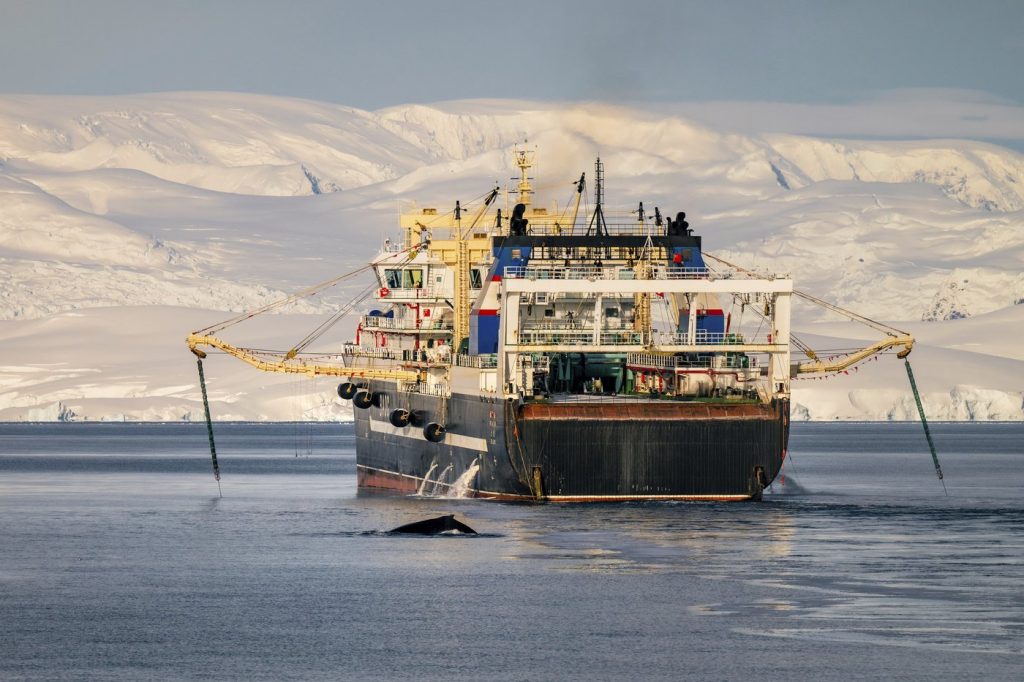In recent developments near Antarctica, krill fishing has surged to a record level, threatening the delicate marine ecosystem and nearing the imposed seasonal catch limit. The fishing boom is a direct result of the failure of major nations, including the U.S., Russia, and China, to establish a new management plan aimed at regulating the krill catch and protecting the environmentally sensitive Antarctic Peninsula. In the first seven months of the 2024-25 fishing season, krill catches reached 518,568 tons, which accounts for approximately 84% of the 620,000-ton limit that, once reached, would trigger an automatic closure of the fishery.
The situation raised alarm as one fishing hotspot reportedly recorded a catch nearly 60% higher than the entire previous year. This information was derived from a report by the Commission for the Conservation of Antarctic Marine Living Resources (CCAMLR), an organization tasked with regulating the fishery. A source, who wished to remain anonymous due to confidentiality concerns, provided the report to The Associated Press, highlighting worries over overfishing in Antarctic waters.
Capt. Peter Hammarstedt, campaign director for Sea Shepherd Global, criticized the concentrated fishing operations. He drew a parallel to a scenario where a hunter claims to have killed only a small percentage of deer in the U.S., while neglecting to mention that all the hunting occurred in a very confined area, like Rhode Island. Such fishing practices exacerbate the threat to local marine wildlife, particularly whales, whose populations are still recovering from extensive historical culling.
Krill, a species of crustacean crucial for the diets of many marine species, especially baleen whales, plays a significant role in combating climate change. However, advancements in fishing technology, among other pressures, have led to a significant impact on krill stocks. The 2023-24 season saw a fleet primarily comprising vessels from Norway and China catch 498,350 tons of krill, marking the largest harvest since CCAMLR implemented catch data collection in 1973.
Recent observations by AP journalists in Antarctic waters reported interactions between industrial fishing operations and recovering whale populations. Tragically, three humpback whales were found dead or injured due to entanglement in the nets deployed by these fishing vessels. The increasing competition for krill between humans and marine animals emphasizes the urgent need for revised management strategies.
Negotiations for a new management plan have encountered significant challenges. One proposed plan aimed to limit krill fishing and expand protected areas in the Antarctic Peninsula, regions known for rich marine biodiversity and increasing tourist activity. However, a deal collapsed at last year's CCAMLR meeting, primarily due to last-minute proposals that undermined previously agreed-upon limits. China withdrew support in reaction to these proposals, complicating the quest for effective regulation.
Javier Arata, executive director of the Association of Responsible Krill Harvesting Companies, emphasized that the expired catch limit was intended as a temporary measure and advocated for immediate actions to increase quotas, contending that current fishing levels remain sustainable according to scientific recommendations. He underlined that the absence of a new management strategy was politically motivated rather than scientifically justified.
As the fishing season progresses, less than 5% of the Southern Ocean is currently protected — a figure that falls short of CCAMLR’s objectives and the UN’s goal of preserving 30% of the world's oceans by 2030. With ongoing pressures from climate change and industrial fishing, the urgency for an effective krill management plan continues to grow, emphasizing the need for quick and resolute action to protect Antarctic marine ecosystems.











